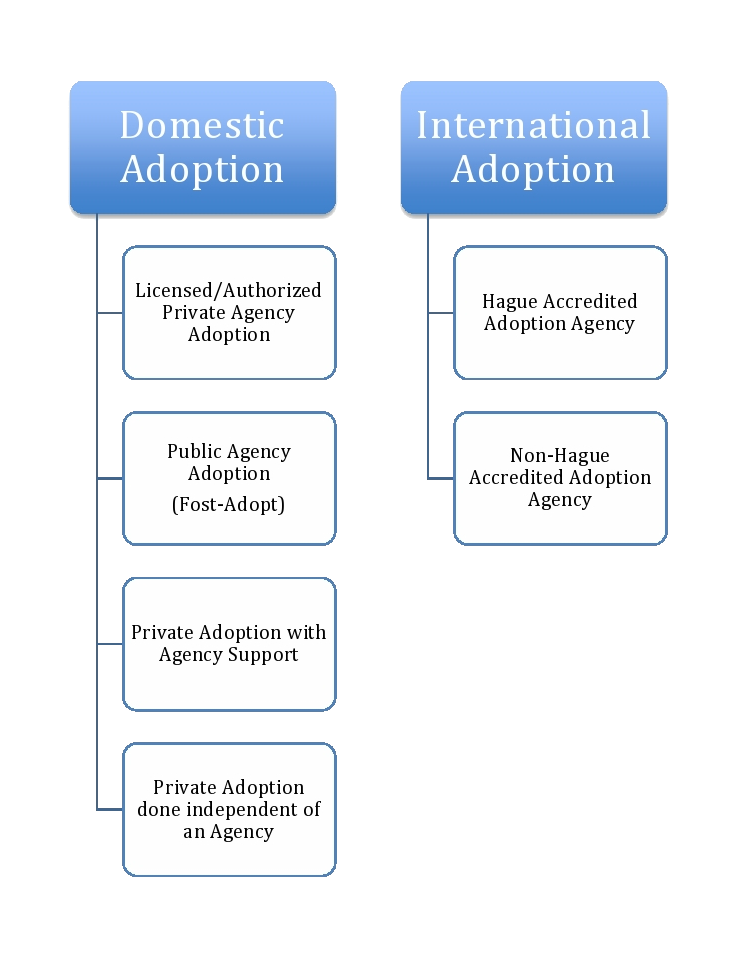Domestic Adoption:
- Licensed/Authorized Private Agency Adoption
- Public Agency Adoption (Fost-Adopt)
- Private Adoption with Agency Support
- Private Adoption done independent of an Agency
Primarily infants are placed in the domestic program. The agency may take custody of an infant and place immediately in the adoptive family or they may collaborate with other agencies or attorneys to help identify a home for one of their infants or young children.
Primarily older children and sibling groups are available. A public agency or county adoption program takes custody of the children and identifies foster families or if the goal is adoption, then identifies adoptive families. When possible, it is preferred that the foster parent adopts the children they are caring for.
This form of adoption involves prospective adoptive parents the opportunity to market themselves and search for a birth parent, while also having the backing and support of an authorized adoption agency. While you are marketing yourselves and searching for an expecting mother who is considering making an adoption plan, your adoption agency will be providing you the knowledge, support and counseling for you and the birth parents.
This is where a private or independent adoption is arranged without an agency. Initial contacts are made directly between the pregnant woman and the adoptive parents or by the pregnant woman and an attorney, depending on State law. Private adoption is legal in all States except Connecticut, Delaware, Massachusetts, and Minnesota. In these States, however, all parties are able to achieve placement should the work with a licensed agency in the state, such as in the case of the above description, private adoption with agency support.
International Adoption:
- Hague Accredited Adoption Agency
- Non-Hague Accredited Adoption Agency
The Hague Convention on Intercountry Adoption is a multinational agreement developed at the beginning of this decade designed to promote the development of institutional structures for the supervision of adoption and to open lines of communication between sending and receiving countries. The United States has ratified this convention and has implemented it on April 1, 2008. Only Hague Accredited adoption agencies can send or receive children with other Hague Signatory countries. If the sending country is not a Hague Signatory country, a non-Hague Accredited agency may still operate in that country. A list of countries that are “convention countries” can be found here.
An agency engaged in intercountry adoptions who has not applied for or was not approved for accreditation or approval to perform adoption services in Convention adoptions. There are new guidelines regarding universal accreditation that will change international adoption even more than the changes that previously occurred. The Intercountry Adoption Universal Accreditation Act (UAA) was signed by President Obama on Monday, January 14, 2013. UAA applies the Hague Accreditation and Approval requirements to all agencies and persons providing “adoptions services” in cases where a child immigrates to or emigrates from the United States for purposes of adoption. For information on the UAA can be found here.


